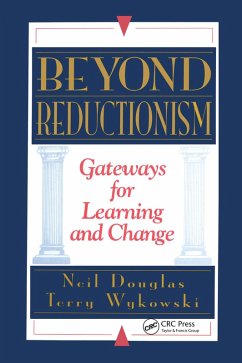Often seen as the central constraint - and the core limiting factor in organizational effectiveness and learning - reductionism is defined as over-simplification and a failure to comprehend the nature of life in organizations by concentrating too fully on discrete and disconnected aspects of reality. The other constraints of hierarchy and institutional knowledge are activated and driven by reductionism.
After reading Beyond Reductionism: Gateways for Learning and Change leaders at all organizational levels will understand why low levels of organizational learning persists and change efforts fail. They will also be equipped to recognize and reject overly simplistic and superficial interventions, helping them to create non-reductionist strategies for creating and sustaining change. Actual project designs, experiences, techniques and results are described in the book within an overall framework that emphasizes the roles and interconnectedness of individuals, leaders, and groups, all operating within the overlay of culture.
Dieser Download kann aus rechtlichen Gründen nur mit Rechnungsadresse in A, B, BG, CY, CZ, D, DK, EW, E, FIN, F, GR, HR, H, IRL, I, LT, L, LR, M, NL, PL, P, R, S, SLO, SK ausgeliefert werden.









